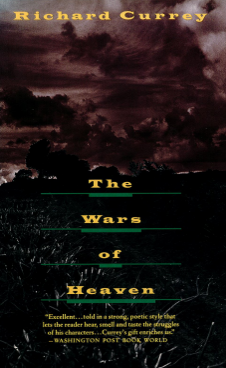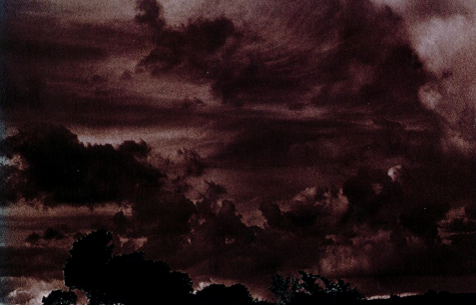
The most striking aspect of Richard Currey’s collection of stories, The Wars of Heaven, is how from the raw, coarse and tragic lives of working class people in West Virginia we get such richly atmospheric prose. There are two ways to escape the misery of the present: either find refuge in nostalgic images of the past or else in the dreams of an unlikely future. We meet an array of characters in Currey’s stories, each grappling with personal tragedy and loneliness. We encounter a man who struggles to cope with his wife’s suicide, an elderly widow caring for his epileptic and developmentally-delayed son, the young, half-orphaned boy Luther who cares for his severely disabled five year old brother and tries to manage life with his alcoholic father or the coal miner who fought to build a more tolerable life through the battle for unionization, only to end up with black lung disease, unable to breathe.
The concept of redemption, seemingly out of reach, connects the stories in Currey’s anthology. People hope to find them in different places. In “Believer’s Flood,” Raymond Dance, a miner living in a mining town effectively controlled by the Red Jacket Consolidated Coal and Coke Company, seeks escape in the town’s makeshift cinema, which screens silent films. Raymond explains his attraction to these early 1920’s films: “I was there in a hardback chair staring up into the wall like it was heaven’s gate for sure….You have to remember these were silent pictures. Nobody played piano. The projector clicked along, prophecy and wide open promise, that ray of light cutting just over my head into another life where the poor and the hopeless always managed to locate a solution of some kind, or laughed their way through hell.”
Of all the six short stories and the novella in this collection, it is the piece entitled “Rock of Ages” that I found the most salient and powerful. Luther’s mother had died giving birth to his younger brother, who was born severely disabled. His father, unable to cope emotionally, was lost to alcohol. Luther’s brother was a faint, vulnerable presence who sat all day on a chartreuse sofa in their cabin and occasionally howled. We see the boy’s detachment and his disability from the eyes of his older brother, a child himself. Currey uses especially evocative language here:
Luther often tried to look into his brother’s eyes, eyes filled with snow and Luther would be reminded of animals, the innocence of small creatures surprised at the edge of a clearing very early in the morning. The mute surprise of a deer who had been lost in the rightful world of the forest and wandered too easily into a broken fall of sunlight. Luther believed his brother carried the same innocence, invisible unless the light moved across his face in an accidental pattern and Luther saw the spirit abandoned there, inside the veined skull waving like grasses on the bottom of a river.
Currey’s stories straddle the boundary between prose and poetry–proving, perhaps, that this line can be a porous one. Some of the imagery is so vivid and credible that it makes one stop reading for a moment to truly visualize it. That happened when I read the short story “The Wars of Heaven.” This reads as a dying convict’s final letter or testimony written to his mother. It’s the candid reflection of a man at the end of a life that was squandered. The image that remains with me is this: “Mama, this is the first and last time you will ever hear this story, your only son shot at Rucker’s Creek not five miles from his place of birth, his blood running over the ice like oil and into the water to cloud up colored like a rose and swirl away.”
The plot in each of Currey’s stories is relatively uncomplicated. These are simple snippets of life filled with the pain and suffering of everyday people — hardship borne with acquiescence and transmitted using haunting language.

Great review Chris – your review invites me to go out and buy the book. Thanks
Thanks for your kind comment, Eleanor! These reviews also help me to keep track of what I read and my thoughts–as I would otherwise forget after a while.
Sounds like an interesting read.